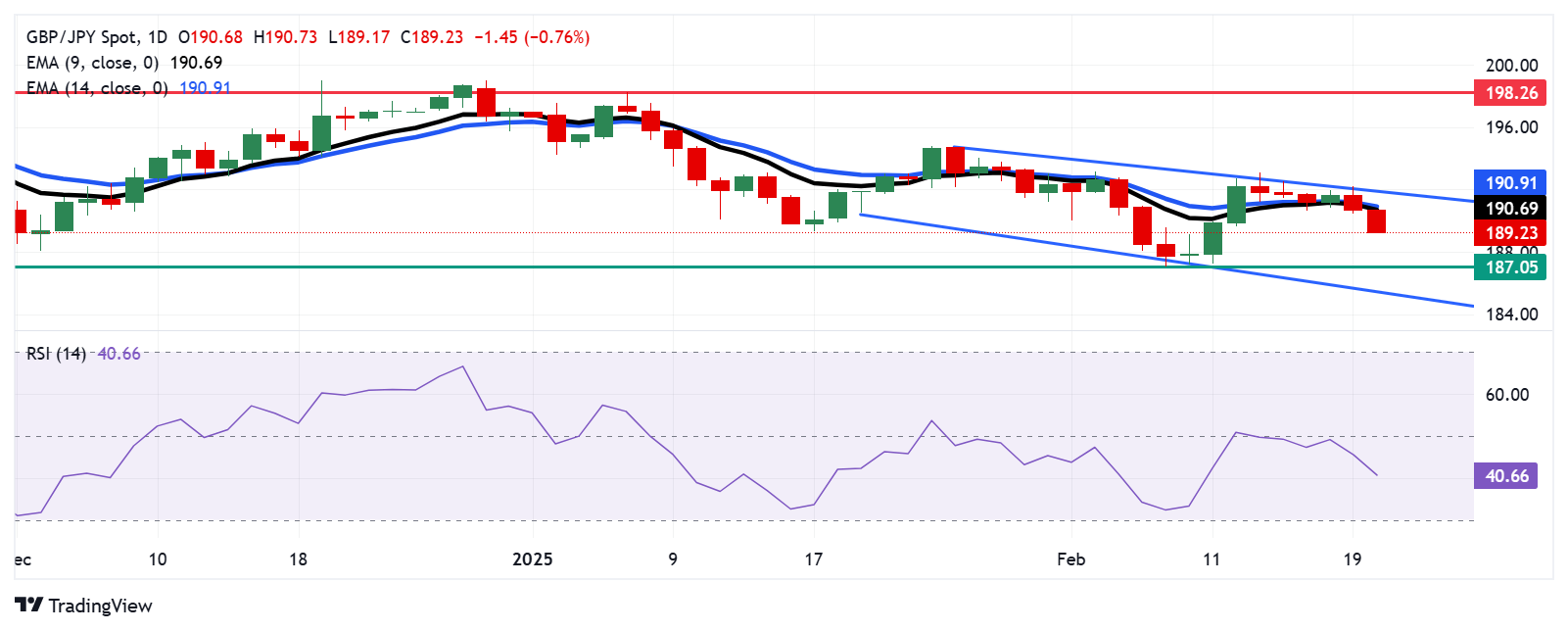The British pound weakened against the Japanese yen on Thursday, with GBP/JPY sliding toward 189.00 after breaking below key technical levels. The decline reflects shifting market sentiment as traders reassess risk appetite and central bank policies.
A break below the nine-day exponential moving average (EMA) signaled a potential shift in momentum, prompting further selling pressure. The yen, often viewed as a safe-haven asset, found support as global uncertainty pushed investors toward less risky positions. Meanwhile, the pound struggled to maintain gains amid speculation over the Bank of England’s future rate moves.

GBP/JPY 1-D Chart as of February 20th, 2025 (Source: TradingView)
Recent data from Japan showed improving economic indicators, further strengthening the yen. Despite the Bank of Japan’s ultra-loose policy stance, expectations of a potential policy shift later this year have kept the currency from weakening significantly. At the same time, concerns over slowing UK growth have added to the pound’s struggles, with traders watching closely for updates on inflation and wage trends.
The broader risk-off mood in financial markets also played a role in the pair’s decline. Uncertainty surrounding global interest rate policies and equity market volatility led investors to scale back on riskier assets, favoring currencies like the yen that tend to perform well in times of instability.
While GBP/JPY remains under pressure, analysts suggest that further downside may be limited unless key support levels are breached. A sustained break below 189.00 could open the door for deeper losses, while any signs of strength in the UK economy or renewed hawkish signals from the Bank of England may help the pound recover.
For now, traders remain focused on upcoming economic reports and central bank commentary, which could determine whether the yen continues to gain ground or if the pound finds fresh support. Until clearer signals emerge, GBP/JPY is likely to remain volatile, reacting to global risk sentiment and shifting monetary policy expectations.













